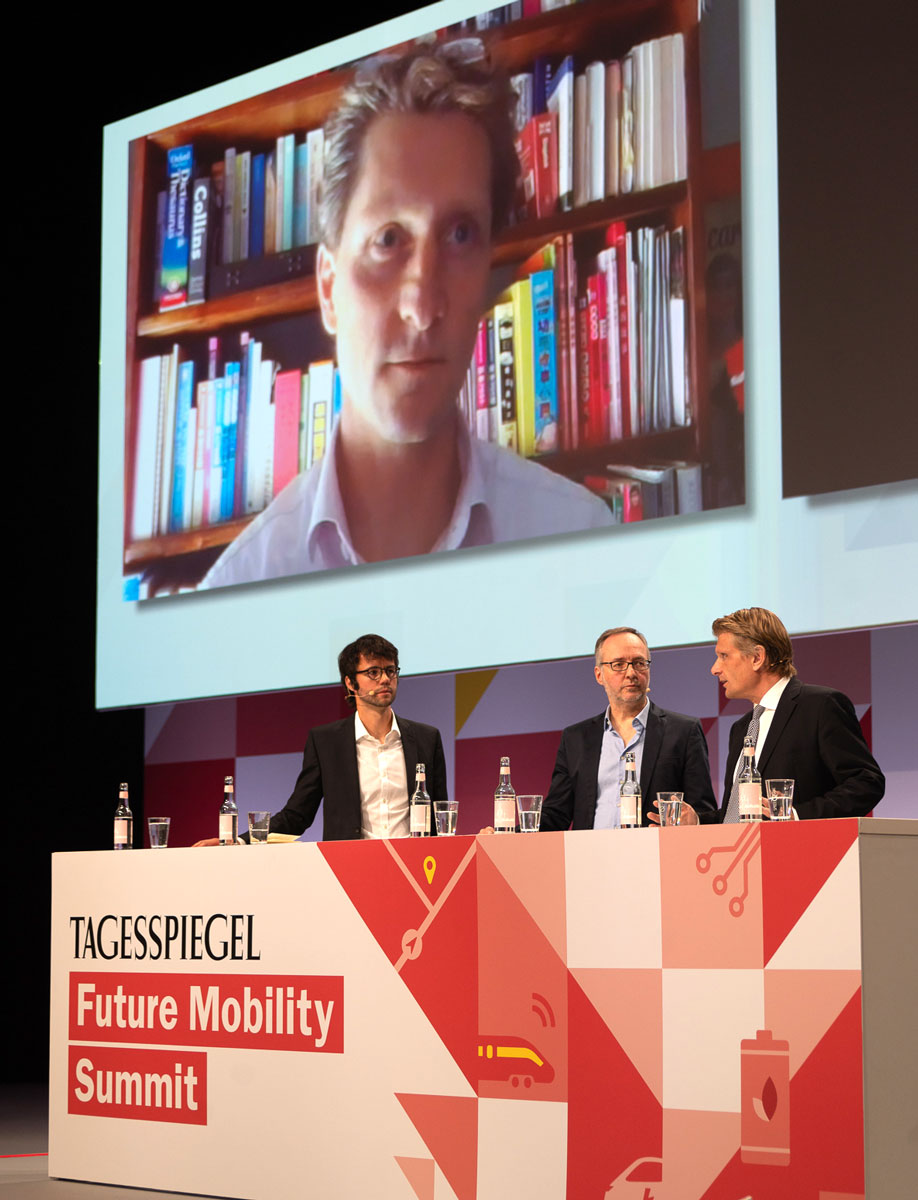Around 115 Toyota Mirai (fuel consumption according to WLPT: hydrogen combined 0.9-0.8 kg/100 km; electricity consumption combined 0 kWh/100 km; CO2 emissions combined according to WLTP 0 g/km) are already on the roads of Berlin, and the fleet will be expanded to up to 200 vehicles. As of September 2023, the vehicles had covered over 1.8 million kilometres in more than 150,000 trips. The Toyota Mirai can be booked via the Uber app and can be ordered with the option “Comfort Electric – Premium Hydrogen / Electric Vehicles”.
Jan Klawitter, Head of International Policy at Anglo American, advocated the need for technology openness in the panel discussion. He emphasised that it is important not to have binary discussions simply comparing internal combustion vehicles versus BEVs versus FCEVs.
“We need to understand that there are technologies that are particularly well suited for different use cases. This is especially true for different types of vehicle fleets, be it company vehicles but also taxi fleets, for example,” said Klawitter.
Other participants in the panel were Thomas Bareiß, member of parliament and transport policy spokesman for the CDU/CSU parliamentary group, and Sebastian Bock, the Managing Director of independent think tank Transport and Environment Germany.
Photo: Tagesspiegel Future Mobility Summit 2023_26.09.2023 _(c) Lena Ganssmann_Laurin Schmid



